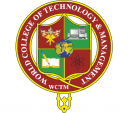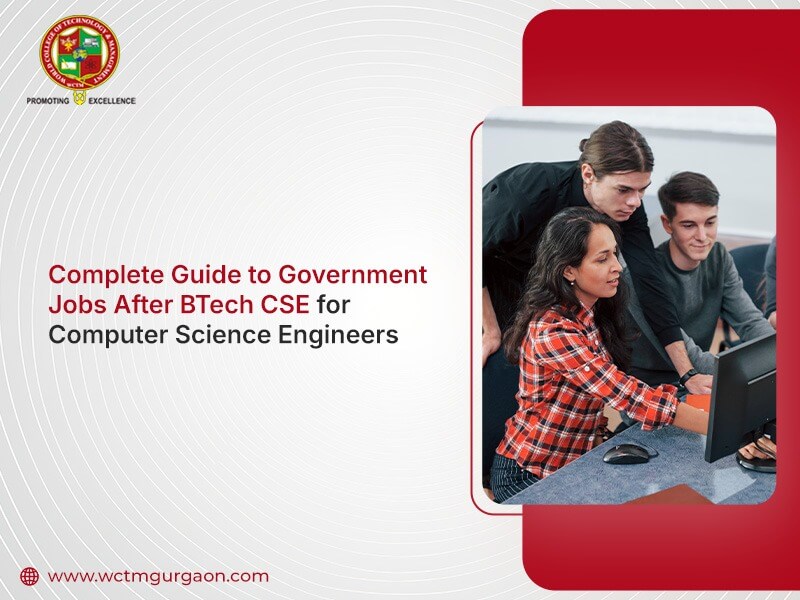As an engineering student or someone planning to make a career in it, who hasn’t heard the terms like Artificial Intelligence (AI), Machine Learning (ML), and Deep Learning (DL) and their role in shaping industries and changing how we interact with technology. To keep up with these rapid advancements, the World College of Technology and Management (WCTM) recently hosted an expert-led workshop featuring Mr. Ashutosh, a leading specialist in AI-driven technologies. The session explored the future of AI, ML, and DL, preparing students for the evolving demands of 2025 and beyond at the World College of Technology and Management.
Know Your Mentor:
Ashutosh has been at the forefront of AI and ML and is the driving force behind the development of tomorrow’s AI solutions. He heads AI Excellence at Perennial Systems, where he drives strategic AI projects, mentors teams, and builds applications for transformation. In T-Systems, his work as an AI/ML Architect led him to innovate automation in AI and MLOps. At Deutsche Telekom, he made an impact in workforce analytics using predictive and prescriptive AI models. Outside corporate life, he is also a teacher and content creator, giving practical knowledge through lectures and industry-specific training. His aim is to bridge the divide between AI theory and algorithms and impact the real world so that the next generation of AI professionals can learn from it.
Being at the forefront of the Best Engineering Colleges in Haryana, we try to bring the best for the students to get some guidance and help them in decision-making for the future.
AI’s Transformative Role in 2025
Mr. Ashutosh started his lecture by explaining how AI is breaking into an impressive number of domains. He noted that across sectors like healthcare, finance, and cybersecurity, AI somewhat changed from being a tool that supports decision-making to becoming a decision-maker itself. He brought insights to the following areas of discussion for students after the B Tech in Artificial Intelligence Gurgaon:
- The increasing ability of AI to automate processes was previously thought to be a complex activity.
- Ethical considerations in that regard include reducing bias and increasing transparency.
- AI creates jobs, allowing humans to do things better rather than taking away jobs.
Machine Learning: Going beyond conventional algorithms
Machine Learning continues to evolve towards becoming more adaptive and intelligent. Mr. Ashutosh explained how modern machine learning goes beyond traditional models through:
- Use of reinforcement learning techniques for better decision-making.
- Real-time data processing for situations like fraud detection and personalised recommendations.
- Encouraging students’ efforts with open-source software such as TensorFlow and PyTorch to play around with more advanced models.
This session provoked students to think creatively about how ML can be executed in their own projects.
Deep Learning: Lighthouse to Next-Generation AI
Deep Learning revolutionises how machines interpret data. Mr. Ashutosh provided examples of its impact in areas such as:
- Natural Language Processing (NLP)-giving AI the ability to understand and generate human-like text.
- Computer Vision-transforming healthcare diagnostics and security surveillance.
- Generative AI-spawning avenues in content creation, from photorealistic images to AI-generated music and text.
He emphasised the need to understand neural networks, backpropagation, and architectures such as transformers to stay one step ahead in the AI arena.
Real-Life Applications and Hands-On Training
The workshop was not only a theory for the B Tech in Artificial Intelligence Gurgaon. The next step was programming in order to:
– Build a simple neural network from scratch;
– Work through an image classification case study;
– Hyperparameter tuning is employed to optimise the performance of the model.
These sorts of hands-on activities increased engagement and were able to connect the dots between theoretical study and real-world implementations, moving the concepts of AI to the real world.
Preparing for AI Careers
With AI influencing various industries, Mr. Ashutosh guided students in building careers in AI, ML, and DL. He shared insights on:
- The importance of combining AI expertise with knowledge in fields like business, healthcare, and engineering.
- Creating strong AI portfolios by working on real-world projects and internships.
- There is an increasing demand for AI ethics specialists to guide responsible AI development.
Continuing Our Commitment to Excellence
At WCTM, we believe that education extends beyond textbooks and classrooms. Our commitment to providing students with industry-relevant knowledge drives us to organise expert-led workshops, seminars, and hands-on training sessions. By connecting students with leading professionals like Mr. Ashutosh, we create an environment that nurtures curiosity, innovation, and practical learning. As technology continues to evolve, we remain dedicated to equipping our students with the skills and insights needed to excel in their careers, standing by the title of one of the Best Engineering Colleges in Haryana. Workshops like these are just one of the many initiatives we undertake to bridge academia and industry, empowering students to stay ahead in the competitive world of AI and technology.
Conclusion
The workshop at WCTM provided students with an opportunity to understand AI’s future, engage in hands-on learning, and gain valuable insights from an industry expert. By blending theory with practical experience, the session prepared future engineers to contribute meaningfully to AI advancements. As AI continues to shape the world, initiatives like these help students move beyond passive learning and become active innovators in the field.
The workshop at WCTM provided students with an opportunity to understand AI’s future, engage in hands-on learning, and gain valuable insights from an industry expert. By blending theory with practical experience, the session prepared future engineers to contribute meaningfully to AI advancements. As AI continues to shape the world, initiatives like these help students move beyond passive learning and become active innovators in the field.
Also Read:



